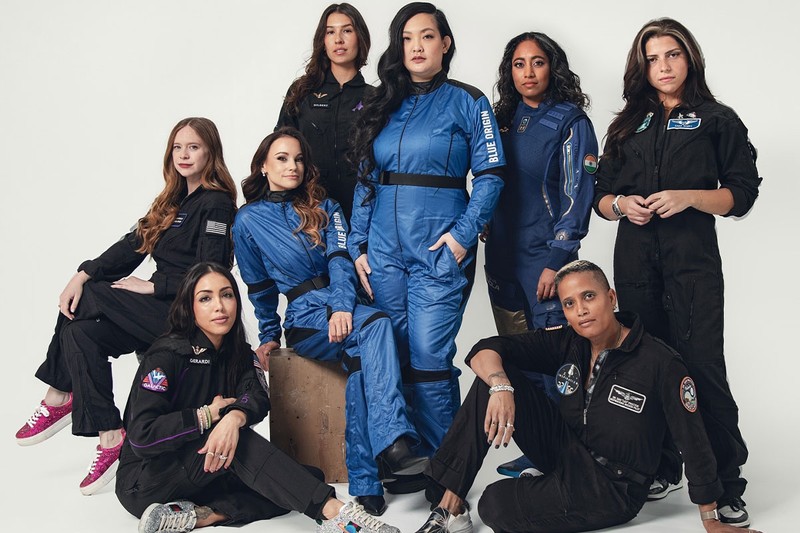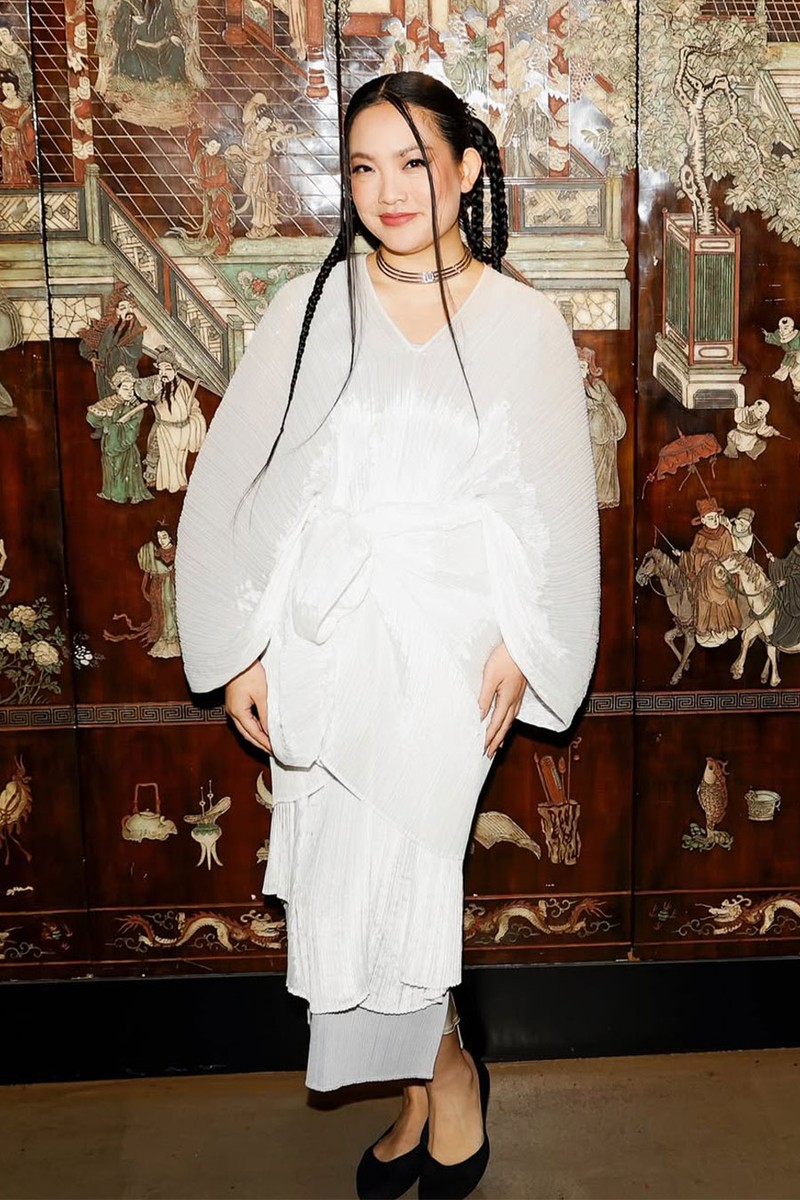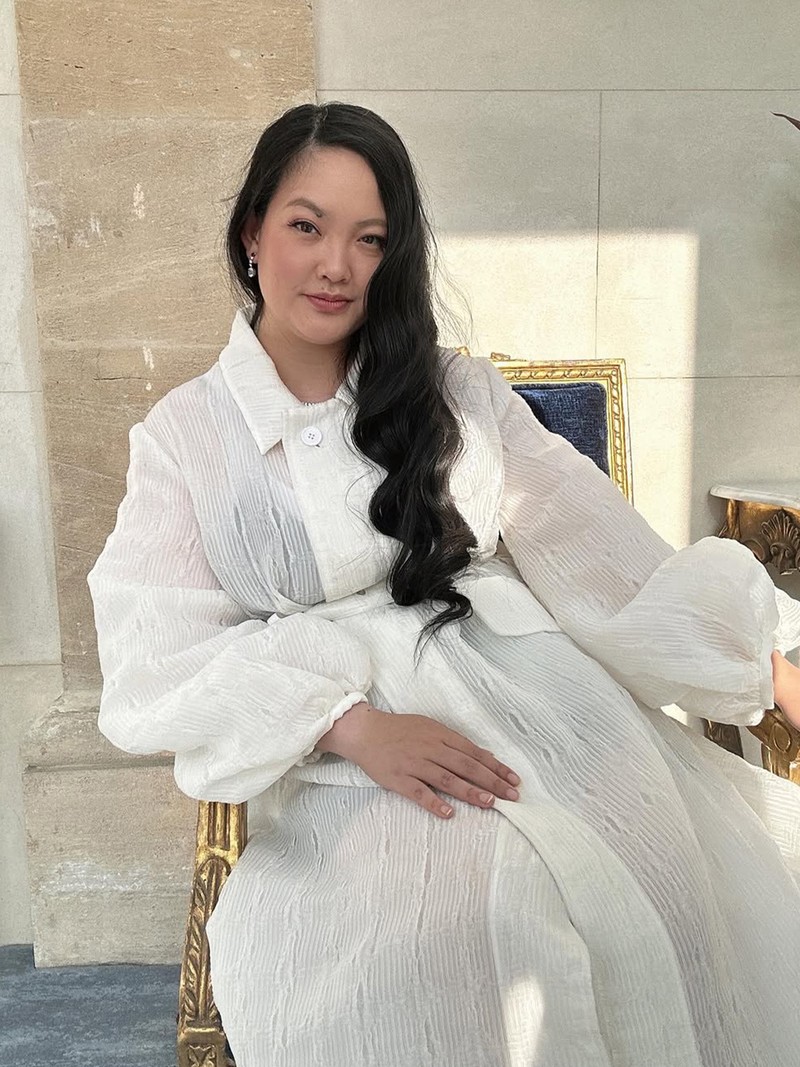
3 Inspiring Women Tell Us About Their Interesting Careers
Reema Juffali
Reema Juffali is a trailblazing Saudi Arabian racing driver who has made history as the first female from her country to compete professionally in motorsports. Since earning her racing license in 2018, she has quickly risen through the ranks, competing in prestigious events such as the British Formula 4 Championship, GT World Challenge and the 24 Hours of Spa. Beyond her career on the track, Juffali is committed to breaking barriers for women in motorsports. She founded Theeba Motorsport, a racing team and platform designed to nurture and empower young talent, particularly women and girls, by providing opportunities, training and mentorship. Through her efforts, she aims to inspire the next generation and create a more inclusive future for motorsports in Saudi Arabia and beyond.
As far as I know, I am the first female race car driver from Saudi Arabia. It’s incredible to think about that because this was never something I dreamed of as a child. Growing up, I was a sports fan. I loved cars from a very young age though – my parents would always tell stories of how I could name car models they didn’t even recognise. But despite this deep-rooted passion, I never made the connection to motorsports as a career until much later. It wasn’t something that even seemed possible.
That all changed in college. My mindset back then was always about securing a successful career – something practical with a clear path. I wasn’t dreaming about racing or anything out of reach. But university opened my world to new perspectives. I studied in Boston, which has a huge sports culture. I loved being immersed in that energy – watching games, feeling the community spirit and realising how important sports were in people’s lives. Still, motorsport wasn’t in the picture yet.
It was during a six-month work placement in the UK that everything changed. Formula One was massive there, and I found myself watching it for the first time. At first, I didn’t understand anything about it. It felt so complex, but something clicked – this was cars and sport combined. I had to know more. That curiosity led me to another race, the 24 Hours of Le Mans. It was unlike anything I’d seen before. It wasn’t just an elite, exclusive sport – it was a mix of professional and amateur drivers, all competing together. I remember watching an older gentleman on the podium, someone who looked like he could be my father’s age, and that was my lightbulb moment. Racing wasn’t just for those who had started at six years old and worked their way up through the traditional ranks. Maybe, just maybe, I could try it too.
It started as a simple idea – just give it a go. I rented a car, got on a racetrack and instantly knew this was it. This was my happy place. The journey from that moment to becoming a professional driver wasn’t instant – it took years. I was still in college at the time, and my focus remained on securing my first job, building my career. But over time, the pull toward motorsports grew stronger.
By 2017, I took the step to get my racing license. The timing was remarkable – 2018 was the year women were allowed to drive in Saudi Arabia. The public attention I received wasn’t something I had expected. People were inspired, supportive and curious. I started getting messages asking how they could get into motorsports. That feedback made me realise that my journey wasn’t just about me anymore. I had a responsibility to help others find their way into the sport.
That’s where the idea for Theeba Motorsport was born. At first, I thought about creating a Saudi race team – bringing in local talent, training them and building something from the ground up. But I soon realised that before we could have a team, there needed to be more education and awareness about motorsports. So now, I focus on grassroots efforts, working with local federations, organising talks and creating opportunities for young drivers to get involved. The ultimate dream is to establish an academy where we can nurture talent and create a clear path into the sport.
I often get asked about the challenges I’ve faced as a woman in motorsports. The truth is, the racing world is tough for anyone, regardless of gender. I started later than most drivers, so my approach was always different. I was carving my own space in endurance racing, where experience and strategy play a bigger role. That said, there have been moments where I’ve had to prove myself. Racing is competitive, and you have to assert your presence on the track. I don’t let my gender define my place in the sport. I focus on my performance. I let my actions speak louder than words. If someone doubts me, I see it as motivation rather than discouragement.
The support system around me has been invaluable. Racing is not an individual pursuit – it’s a team effort. I have mentors, teammates and a community that has helped me navigate this world. That’s why I want to create similar opportunities for the next generation. When people look at my journey on social media, they might think it all happened overnight. But the reality is that it took years of learning, adapting and taking small steps toward a bigger goal. Motorsports wasn’t a childhood dream – it was something I discovered along the way. Now, my goal is to help others find their path into it, too. The sport is growing in Saudi Arabia, and the future is bright. I’m proud to be part of this movement, and I can’t wait to see where it leads next.
International Women’s Day holds a special significance for me. It’s a reminder of how far we’ve come and how much more there is to achieve. Motorsport, like many industries, has traditionally been male-dominated, but we’re seeing more women step into the spotlight and break barriers. Representation matters, every time a young girl sees a woman behind the wheel of a race car it reinforces the idea that she, too, can pursue her passion – whatever it may be. My journey is just one example, and I hope it inspires others to chase their dreams, no matter how unconventional they seem. On this day, I celebrate not just my achievements but the progress of women everywhere who are pushing boundaries and redefining what’s possible.
Follow @REEMAJUFFALI
Hannah Bennett
Born and raised on a remote island in Fiji, professional surfer Hannah Bennett is deeply connected to the ocean and her people. As a trailblazer in Pacific Island surfing, Hannah and her sisters were among the first women to represent Fiji on the international stage and she also made history as the first female president of the Fiji Surfing Association, using her platform to empower young athletes, particularly women, through mentorship, surf clinics and documentary storytelling. She currently runs Fiji Surf Girl Clinic, an empowering female community focused project which sees Hannah go into Fijian villages, asking for the blessing from the village Chief to take the girls away from their duties to have a day for themselves, learning to surf and about ocean stewardship and environmental awareness.
My older sisters inspired me to take up surfing but I began to develop a passion for it when I started competing as a teenager. Competing at the World Surfing Games alongside my older sister Kim and fiancé Victor are some of my greatest memories. But being the first Fijian female to compete in the world qualifying series and pave the way for younger generations is the thing I will forever be grateful to have the opportunity to do.
I don’t believe that just by being a woman, I deserve to be given anything. I do, however, believe that even as a woman, I have the right to be given equal opportunity to earn everything. I spent years competing against my male counterparts in local events because there was either not enough female competitors or simply not a division that represented us. I know my presence during these events didn’t feel like it made any difference at the time but now I realise my participation showed other girls what was possible, even to myself. Once that path was paved, there was no turning back. Establishing fair representation in local competitions inspired me to become a strong advocate for equal prize money and acknowledgement for female competitors which I’m proud to say has become the norm within our surfing community today.
I have been volunteering for the Fiji Surf Association for over a decade. My journey started as a development officer for youths in rural coastal communities. I have always been motivated by the younger generation and creating the kind of opportunities for them that I never had growing up. Introducing kids to their ocean environment through the art and sport of surfing is a beautiful experience for both the teacher and the student. I founded Fiji Girls Surf clinics for this exact purpose but also to help refuel my inspiration and remind me of my purpose as a leader and servant of my community. Our main goals are to continue to grow the sport in a diversified way that offers sustainable career pathways grounded in the ethics of good sportsmanship, ocean stewardship and importantly our heritage as Pacific Islanders.
What people don’t understand is that I become highly motivated when I’m pushing boundaries. I enjoy rustling a few feathers, influencing a cultural shift or shattering another glass ceiling. Of course, it’s daunting and I rely heavily on my inner circle to help navigate these moments, but it fires me up and I’ve actually become quite comfortable in this role. I’m at a place now where I feel at ease, I feel like I’ve grown into my own potential and I’m confident in my capacity as a leader. What’s important to me as president is to lead with humility but also show unwavering tenacity towards the mission. I’m not afraid to push back, to speak up for others. I think it’s important to embrace criticism because when you’re doing something that’s never been done before, it’s part of the job and my only hope is that I set a precedent that ensures the women after me will be taken seriously, treated with respect and have a voice.
My annual Fiji Surf Clinic continues to grow every year, and I enjoy getting creative with the different ways we craft that experience for the girls. A lot of it is about working with women-centric brands, like Rise Beyond The Reef & Salted Swimwear, which truly understand empowerment at its core and ensure all our local events have female divisions with equal prize money. Mentoring young women in our community to up-skill in official roles – like gaining accreditation as judges, coaches, beach marshals and even executive board members – is also part of our work. Real empowerment begins by equipping our female counterparts with the tools and education to make their own mark, pave a different path or create something unique to who they are.
Here in the Pacific, surfing is a way to reconnect to our ancestral practices and ocean environment. It has the ability to empower communities, promote ocean stewardship and preserve our cultural heritage. About 90% of Fijian communities live on the coast or shoreside and surfing is a pursuit that requires you to be in tune with the natural world. You have to know what the tides are doing, the geography of the reef, where the winds blow and all this knowledge has been embedded in us by our ancestors. Through surfing, we have the ability to navigate issues such as climate change and economic instability by reverting to our traditional ways of self-sufficiency and sustainability as realistic solutions. I’m currently involved in a documentary film capturing my vision and my journey as a Polynesian surfer and the people and places that inspire me along this path. I’ve really enjoyed the process of storytelling through film as a form of cultural preservation and I can’t wait to share this project with the world.
Competition is cool but community is cooler. My advice to other women and girls is to use your platform and skills to lift up your people and keep your environment clean. IWD to me is an ode to all the women before us and for all those yet to rise. I believe women have the power to accelerate action in a way that brings about real solutions through compassion, strength, community and tenacity.
Follow @_FIJI_GIRL_
Amanda Nguyễn
Amanda Nguyễn is a civil rights activist, a Nobel Peace Prize nominee for her Sexual Assault Survivors Bill and will be the first Southeast Asian woman heading to space this year. She’s also the founder and CEO of Rise, a non-governmental civil rights organisation. Finally, she’s recently teamed up with make-up brand e.l.f on a campaign dedicated to empowering women and girls worldwide to dream beyond boundaries and redefine what’s possible.
The first time I walked into a rape crisis centre, there weren't enough seats in the waiting room. I had known how prevalent sexual violence was on one level, but I didn't understand it until I became a survivor. Then I was informed that my rape kit would be destroyed in six months, which wasn’t enough time to process the DNA, let alone use it to get justice. So, I faced a choice: accept the injustice or rewrite the law. I rewrote it, and Rise was born. We began with the Survivor Bill of Rights at a federal level and continue to work state-by-state to ensure survivors have their rights protected. So far, we’ve passed 103 laws across all of our programmes.
Rise’s mission began with passing and securing survivor rights across the nation and the world. But when our reform movement proved successful, we had activists asking us for advice. That’s when the other part of Rise – the part that focuses on creating transparency with the government and empowering everyday people to pass their own rights – was born.
There are two questions I ask myself every day. What's our place in the universe? And what am I going to do about it? In astrophysics, we study how the smallest changes can impact the universe's trajectory. A seemingly small shift in temperature can lead to a supernova. When we think about changing systems, we have to understand that seemingly small actions, such as standing up for ourselves, can have a monumental impact. Just as a single shift in the cosmos can reshape galaxies, our individual choices have the power to shape the world around us.
Challenging my own preconceptions of politicians is one of the biggest challenges I’ve faced. I think we’re conditioned to be hyper-polarised in this country, but reform doesn’t happen that way. I had to learn to practice radical empathy – or see the human being who never saw the human being in me. It’s not easy to have to make those concessions or swallow your pride, but it becomes an issue of the interest of one or the interest of many. I will always choose many.
Sexual assault survivors' rights, women’s rights and the fight against anti-Asian hate are interconnected. My advocacy spans these areas because justice must be intersectional. When attacks on the AANHPI community surged in 2021, I felt uniquely positioned to address this through Rise’s track record on sexual violence survivors' rights. Sexual violence disproportionately affects women, particularly women of colour and immigrants, and the rise in anti-Asian hate crimes highlighted the intersectionality of these issues. By advocating for survivors' rights, while confronting racial, gendered and xenophobic violence, we can work toward a more just and equitable world, where all forms of oppression are addressed together.
You do not have to sacrifice your joy to pursue justice – you can always be multitudes. I like fashion and space and make-up, and in the process of fighting for my rights, I’ve found the people who uplift all of those parts of me, like e.l.f.; we worked together on an incredible short film called Show Your(s)e.l.f that follows my journey from my activism to space. Any woman looking for where to start should look for the people who want to help enable every part of you.
Hope is a renewable resource. Despite ongoing challenges and to be honest, the chaos that we see daily, understanding the power of having hope and leveraging hope as a resource for change keeps me motivated. I see it in the amazing organisers who fought in the trenches with me for survivors’ rights, I see it in my beloved community of women astronauts. At Rise, we teach a concept called hopeanomics – the idea that grassroots organising stems from hope and that hope can scale to change the world.
My mum is a refugee from Vietnam – we came on boats and now we're on spaceships. All within one generation, which just goes to show the power that we have. And it’s so important to me to bring my community with me. So, I know that I might be the first, but I definitely want to make sure that I'm not the last. Just as I fought for my civil rights as a survivor so that no one would have to go through that again, when I fly, I want to show all the young Asian American women out there, especially the Vietnamese community, that they belong in the stars.
One of the initiatives I’m really excited about is passing a treaty for universal justice. We’re working with His Excellency President Bio of Sierra Leone to create the “Freetown Treaty” – a treaty that will ensure that rape and sexual violence are considered crimes universally, which means that no matter where they go or what borders they cross, rapists will not be able to escape accountability.
International Women’s Day is about the past, present and future of women. It is about honouring the women whose shoulders I stand on to reach the stars. It is about nurturing the women of today, whose brilliance, joy and passion fuel change for the future. And it’s about planting seeds for the next generation of women to flourish, thrive and make the world a better place.
Follow @AMANDANGOCNGUYEN
DISCLAIMER: We endeavour to always credit the correct original source of every image we use. If you think a credit may be incorrect, please contact us at info@sheerluxe.com.
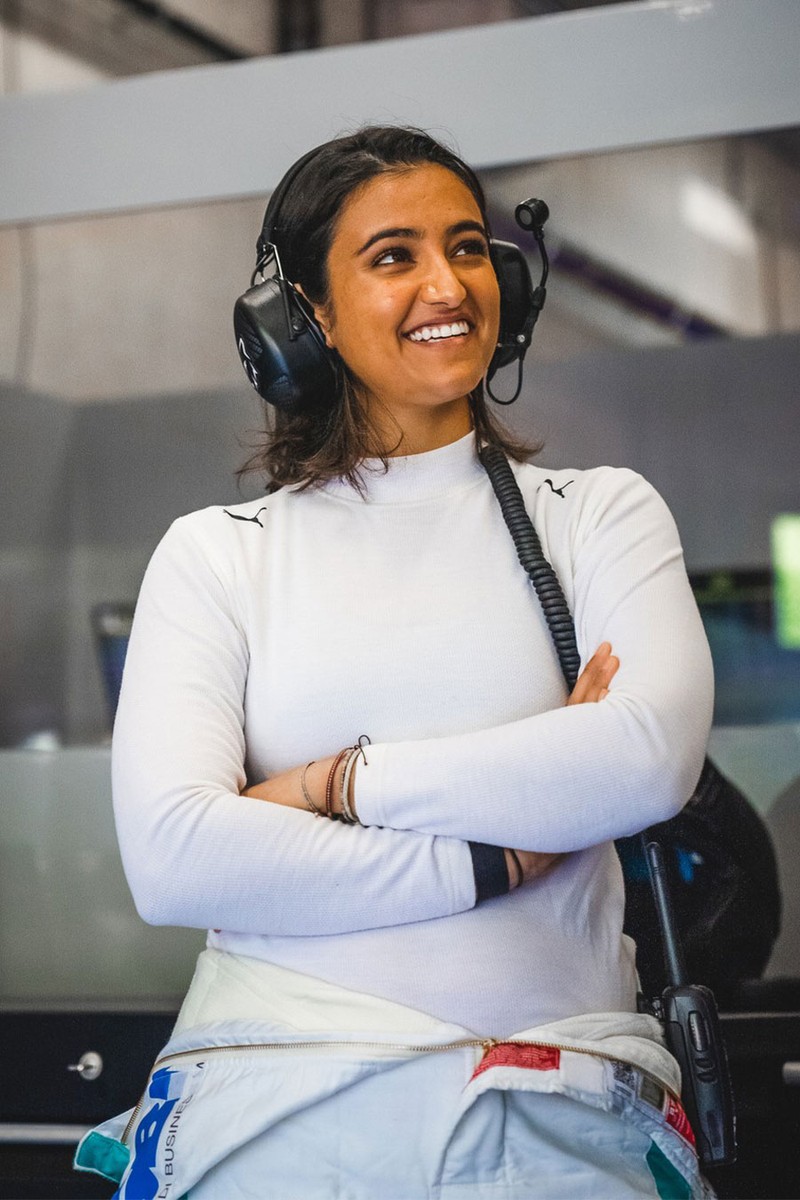
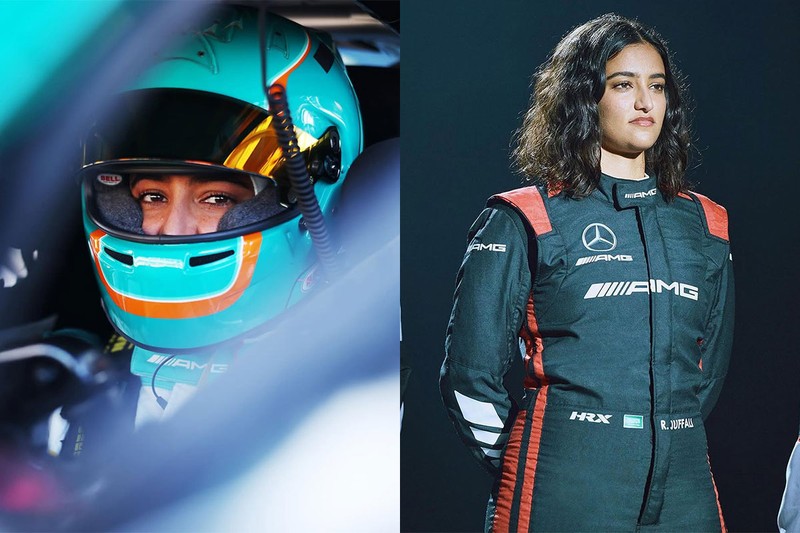
/https%3A%2F%2Fsheerluxe.com%2Fsites%2Fsheerluxe%2Ffiles%2Farticles%2F2025%2F03%2Fhannah-bennett-fiji-image-credit-to-kalani-mueller.jpg?itok=_rixdFXC)
/https%3A%2F%2Fsheerluxe.com%2Fsites%2Fsheerluxe%2Ffiles%2Farticles%2F2025%2F03%2Fhannah-bennett-fiji-image-credit-to-kalani-mueller6.jpg?itok=u6rcaYQZ)
